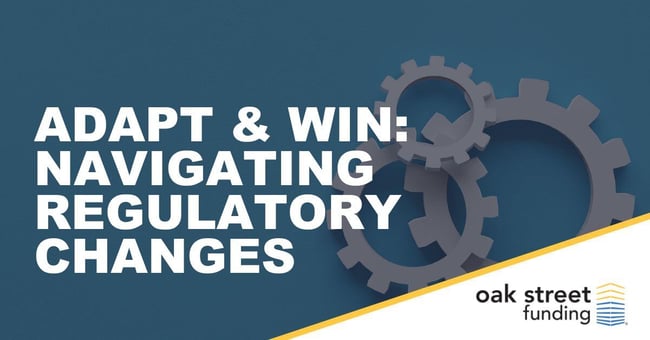
According to American Institute of CPAs (AICPA)’s most recent CPA Firm Top Issues Survey, keeping up with changes and complexity of tax laws is expected to be one of the top five issues for small and large CPA practices over the next five years. Finding the right strategies for your practice to adapt efficiently can be overwhelming, so we put together this guide to help you navigate these regulatory changes and achieve long-term success.
Keeping up with regulations
The first step in navigating evolving tax laws, accounting standards, and other types of regulations while maintaining compliance is to use all the resources available to you and adopt continuous learning. Here are some ways you can achieve this:
-
- Professional associations – As a CPA, you can join AICPA or your state's CPA association. These organizations provide high-quality resources like webinars, events you can attend, guides, courses, and a well-connected network of peers that you can exchange knowledge with.
- Regulatory agencies – Many CPAs frequently participate in surveys, attend meetings and conferences, and review guidelines distributed by regulatory agencies like the Financial Accounting Standards Board (FASB) and the Securities and Exchange Commission (SEC). You can sign up for alerts or join their mailing lists to get the information directly to your inbox.
- Industry publications – Reputable publications like the Journal of Accountancy and The Tax Adviser provide in-depth analysis and insights from peers in your field. Subscribing to them will help you stay current with not just tax changes, but also new auditing standards and data privacy regulations that impact your clients.
- Accounting and tax software – Your practice can implement software to track different changes in regulation and ensure compliance. If you’re not using one already, compliance management systems can more easily pull updates from various sources and compile summaries. These tools might be a good investment to save you time.
- Continuing Professional Education (CPE) credits – Look for courses that cover the latest regulatory changes relevant to your practice area when obtaining CPE credits.
- Online Forums and Social Media Groups – Joining online forums and social media groups created for CPAs allows you to share insights, ask questions about specific regulations, and be aware of emerging trends that may affect your practice.
Turning compliance into a competitive advantage
Staying hyperaware of regulatory changes and best practices to remain compliant can help you better anticipate potential challenges and opportunities for your clients. One strategy to differentiate your practice from competitors is to offer holistic services. Today, customers value simplicity and don’t enjoy having to refer to multiple providers. By adding new services based on how the latest regulations impact your clients, your practice will meet most if not all of their accounting-related needs. For example, you might consider adding a consultation service by hiring new employees or acquiring another business that currently provides it.
Numerous practices are starting to take on this advisory accounting approach through Client Accounting Services (CAS), with 42% of practices now providing CAS according to a report in CPA Practice Advisor. This trend is expected, as 83% of business owners believe receiving business advice alongside regular accounting services is essential. The most common CAS services practices add include:
-
- Virtual controller or CFO services
- Wealth management
- Cash flow management
- Succession planning
- Industry benchmarking
- Performance evaluations
- Budgeting or forecasting
It’s likely you’re already providing some form of CAS in your practice, i.e. when you give your clients guidance on how to reduce their taxes. Expanding on this and adding advisory work as an official service provides you with another opportunity to increase your revenue all while separating you from the typical, compliance-heavy offering accounting practice.
The future of the accounting industry
It’s clear the accounting industry is undergoing a significant transformation. Traditional bookkeeping and tax preparation services are becoming more automated with AI and machine learning. In this evolving landscape, constantly keeping up with regulations while offering CAS is how competitive practices set themselves apart.
As you move forward, consider how you can implement items shared in this article. Whether you join a new professional network, invest in compliance management software, or explore CAS opportunities through AICPA’s workshops, each step you take positions your practice for long-term success in an ever-changing industry. With these tools and strategies at your disposal, how will your practice adapt and win?



/Resources%20Thumbnails%20(47).png)

/Resources%20Thumbnails%20(20).png)